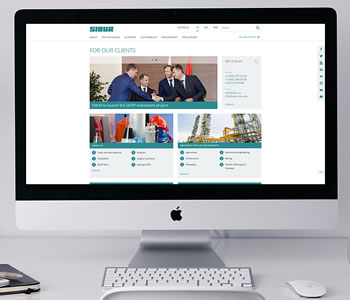Social media started gaining popularity back in 2000s, and it is still growing. This year, Levada-Center published the results of another survey on social media popularity among the Russians. They show that around 60% of adults communicate online, while the previous survey at the beginning of the decade reported only 39%.
There was a saying that a newspaper can kill a fly or a man. Today this saying is true both about traditional media and social networks. A doctor’s selfie in the operating theatre, a stewardess’s hostile comment about a passenger, an improper photo of a colleague or, even worse, a partner, posted on the web can ruin your career and harm your employer.
In Russia around 60% of adults communicate online, while the previous survey at the beginning of the decade reported only 39%.
Write impossible to ban
Reputation is at the heart of business success. It is the key intangible asset of any company accounting for up to 90% of the market value, according to various estimates. And it is your employees who shape the perception of your corporate image. It is hard to believe that a single post can have an impact on the reputation of a huge company with dozen or hundred thousands of employees, but in business every little thing matters. “I have known situations when a person recklessly published something like an emotional comment on negotiations, and let down his company by destroying the client’s loyalty,” said Timur Makhmutov, Manager Chemicals, Equipment and Engineering at the recruiting company Hays. At the same time, social media may be a powerful tool for building up reputation and highlighting customer focus. For example, communicating with clients via social networks gives a much deeper understanding of their needs and helps provide the best client experience.
Communicating with clients via social networks gives a much deeper understanding of their needs.
SIBUR and its subsidiaries currently have over 30 social network accounts with upwards of 30,000 subscribers and followers. These accounts publish not only information on the company’s operations, but also photos and videos from sports and cultural events, as well as updates on charity initiatives.
No wonder companies are increasingly engaged in social networks and tracking their employees’ behaviour on the web. The Western business giants were the first to recognise the risks and opportunities of social media, which is no surprise – there social networks became widespread much earlier than in Russia. In 2008, Intel Corporation adopted the Social Media Guidelines. The key rule for the employees is to distinguish between their own attitudes and Intel’s positions. Microsoft followed their suit: “Please note that all information that you provide can be perceived as an official corporate statement. Do not make any statements you are not supposed to make, but support the company’s key announcements.”
According to the Superjob survey, every second company regulates its employees’ conduct in social networks and on forums in this or that way. “The line between professional and private life is gradually erased. As employees help create perception of your corporate image, this aspect is becoming increasing important,” says Timur Makhmutov. The expert is confident that total freedom in social media, or, vice versa, a witch hunt and total prohibition may have a negative impact, while clear and transparent rules and regulations will effectively mitigate potential risks.
This is why SIBUR has developed in-house social media guidelines in line with the global best practices. “Remember that you are part of SIBUR’s team. Even if you do not identify yourself as a company's employee in the discussin or your profile does not indicate your place of work, be careful about the information you disclose, in particular when it pertains to the Company, its shareholders, products, partners and competitors. Your profile and conduct in social networks create the image of a SIBUR’s employee,” say the guidelines. It does not mean, however, that people cannot talk about their job – their publications just have to use common sense. If necessary, our dedicated specialists can provide assistance.
In 2008, Intel Corporation adopted the Social Media Guidelines.
Four pillars
SIBUR shares news on interesting developments in the petrochemical industry, which include scientific advancements, production technology improvements and creative approaches to the application of polymer products.
In general, these guidelines rely on four principles. The first one is to be truthful. One should not disseminate knowingly false or unverified information about the company, its partners, competitors or their products. Employees are advised to be honest even if they seek to act in the company's best interests. “If you make an endorsement or recommendation about Intel's products/technologies, you must disclose that you work for Intel,” say Intel's Social Media Guidelines. The second one is to be decent. Employees are advised to avoid derogatory remarks when communicating in social networks. For example, MTS’s Code of Corporate Conduct and Business Ethics states that employees are discouraged fr om engaging in defamatory or offensive rhetoric against other users. One should behave decently, even if emotions are running high. In 2014, in the midst of the Ukrainian crisis, Art. Lebedev Studio fired one of the senior executives at its Kiev office because of inappropriate comments about the Russians. “Can one be fired for speaking out one's mind? Of course, they can,” Lebedev commented on his Facebook page.
The decency rule also applies to any publications about competitors. Employees may be tempted to post critical or provocative comments about their rivals and use it as a competitive advantage. This is an unfair game that may turn out badly for the company in general. “By criticising or bad-mouthing competitors you present them as victims in the eyes of your client. This poses two threats. Your criticism may prompt the client to take a closer look at the competitor and check if they are as bad as you say... If, in the client's opinion, they are not, the client will lose trust in you and never come back,” says business Mike Zavadsky, a business consultant, in his book "Mastery of Sales“. Alternatively, the client may start sympathising with the competitor under fire. While listening to you, they may start wondering what you are going to say about them behind their back. This will not foster your cooperation, either.“
The third fundamental principal is to be competent. Employees are strongly advised to write only about what they know and stick to their area of expertise.
Can one be fired for speaking out one's mind? Of course, they can.
According to online engagement principles of NVIDIA, an IT major, “if you contribute content to social media, only write and post about your areas of expertise, especially as related to NVIDIA and our technology.” However, the same applies to employees of state-run organisations. This summer the web was full of discussions about Anna Lyubeznova, a press officer of the Ministry of Health of the Astrakhan Region, who was dismissed after her Facebook comment on a topic beyond her area of expertise. She commented about raising funds for the treatment of a seriously ill girl, saying that the girl alone needed so much money, while there were many others in need. The ministry immediately stated they did not share Lyubeznova’s opinion.
And, finally, no company wants its employees to disclose confidential information. The fourth fundamental principle is to be cautious. Data leakage may occur without malicious intent, just because the person did not give it a thought. Yet what is done cannot be undone. Sberbank’s Code of Corporate Ethics prohibits employees “to spread or discuss on public Internet resources information related to the Bank’s activity...” NVIDIA’s advice is to “always pause and think before posting. If you are about to publish something that feels uncomfortable, reflect on whether to post it. Ask yourself: “If my manager saw this, would I be embarrassed or worried?” If you are still unsure, discuss it with them or the Legal Department,” says the corporation.
Sberbank’s Code of Corporate Ethics prohibits employees “to spread or discuss on public Internet resources information related to the Bank’s activity...”
What is personal?
“Nowadays, almost everyone is on a social network where they can be traced back to any company, so even seemingly harmless funny pictures have the potential of affecting the business image,” says Timur Makhmutov. And there’s the rub: wh ere do we draw the line between personal and work life?
Employers do not normally regulate anything that is strictly “personal”. However, it is possible to identify some topics that should make people think twice before hitting that “post” button. These would be religion, risqué humour, politics, sex and questionable hobbies, believes Liana Bakhova, author and head of customer experience management programmes. “My old friend’s company had to deal with an unpleasant situation. During a meeting, a business partner asked why he was such a slave driver, making his employees happy to have survived till the weekend. It turned out the head of the sales department got a bit carried away with his TGIF posts.”
In this case, the company suffered a reputational damage, but it could also have sustained a direct financial loss. A manager of insurance company N laments the loss of a big client due to an employee's bad Facebook joke. He posted a provocative statement on a religious topic that he thought was funny. The client stumbled upon the post and decided to part ways with the “jokers”. Another client of the same company backed out of the deal after chatting with a female manager via the Facebook messenger. The reason was an inappropriate avatar picture of the insurance agent. The now-former client commented that he was not a show business celebrity and had no need for insuring legs or breasts. “We can never be completely aware of our clients’ personal histories, so any reckless remarks have the potential of offending somebody,” says Liana Bakhova.
Should companies go after the offending employees or is it better to let go? There was a curious case in the US a few years ago when a sheriff fired his employees for “disrupting the workplace”. The fired employees did nothing criminal, though: they just clicked the “like” button on the page of the sheriff's political opponent. The case went to court. The US takes freedom of speech protection very seriously, but the court ended up ruling in favour of the sheriff. According to the judge, liking a Facebook page is “insufficient speech to merit constitutional protection”.
The fired employees just clicked the “like” button on the page of the sheriff's political opponent.
Isabella Atlaskirova, head of the SaaS Project legal firm, says that the Russian law prohibits firing of employees on any grounds not related to their work performance. Moreover, the employer has no right to fine employees for their social network behaviour, as the salary is basically off-limits (save for special cases). However, the law does leave room for action: if the company has a regulation that bans discussion of certain topics on social networks, and the employee read the said regulation and still breached it, then he or she would be in the wrong. Still, fines, let alone firings should be the last resort measures. The majority of social network faux pas are inadvertent. Instead of losing employees, it is better to educate them on the online conduct. Experts advise against forcing rules upon the personnel. It is much more effective to explain the rationale behind them and the possible consequences of blunders. This way, social network rules will become an integral part of the corporate culture. People will follow them not because they have to or because the boss said so, but with a full understanding of their personal responsibility.
Download PDF










